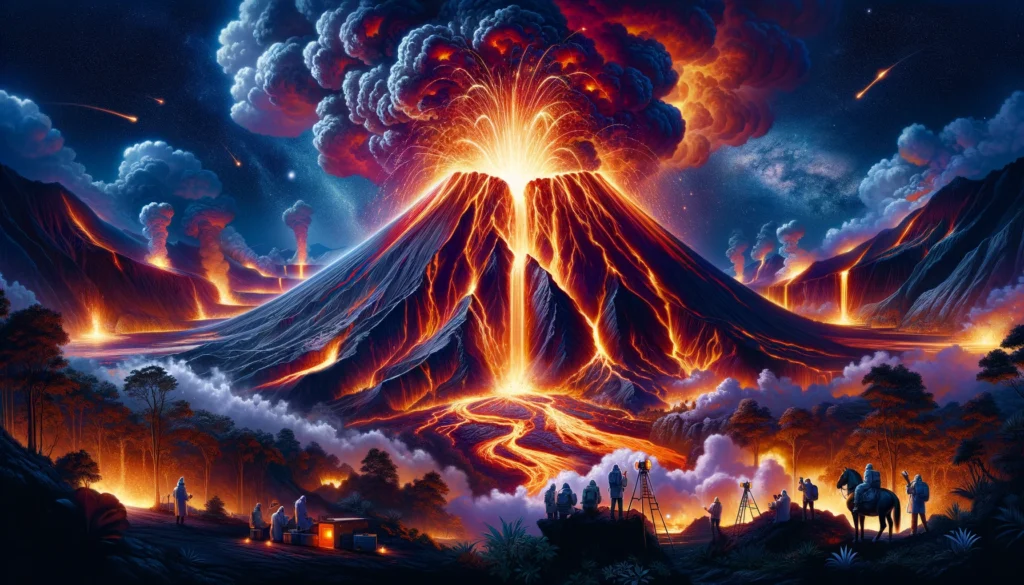
Table of Contents
A2 Level (Elementary)
- What is a volcano?
- Have you ever seen a volcano?
- What colors are lava?
- Can plants grow on a volcano?
- Do people live near volcanoes?
- Why do volcanoes erupt?
- Are all volcanoes the same size?
- What should you do if a volcano erupts?
- Can volcanoes be found in the ocean?
- Do you think volcanoes are scary?
B1 Level (Intermediate)
- How are volcanoes formed?
- What are the benefits of living near a volcano?
- What are the dangers of volcanic eruptions?
- How do scientists predict volcanic eruptions?
- What types of volcanoes are there?
- Why are some eruptions explosive and others are not?
- How do volcanoes affect the climate?
- Can you name any famous volcanoes?
- How do people prepare for a volcanic eruption?
- What happens to wildlife during an eruption?
B2 Level (Upper-Intermediate)
- Discuss the role of volcanoes in creating new land.
- How do volcanic eruptions impact air travel?
- Analyze the relationship between volcanoes and earthquakes.
- What are pyroclastic flows, and why are they dangerous?
- How have cultures around the world viewed volcanoes historically?
- Discuss the importance of volcanic soil for agriculture.
- Evaluate the challenges of volcanic disaster management.
- How do underwater volcanoes contribute to ocean ecosystems?
- What is the Ring of Fire, and why is it significant?
- Discuss the long-term environmental impacts of volcanic eruptions.
C1 Level (Advanced)
- Critique the effectiveness of current volcanic monitoring technologies.
- Discuss the implications of volcanic eruptions on global warming.
- Analyze the socio-economic effects of volcanic eruptions on local communities.
- Evaluate the potential of geothermal energy from volcanoes.
- How does volcanic activity contribute to planetary evolution?
- Discuss the ethics of tourism in volcanic regions.
- Analyze the psychological impact of living under the threat of eruption.
- Evaluate the role of international cooperation in volcanic disaster response.
- How have volcanic eruptions influenced art and literature?
- Discuss the challenges of reconstructing after a volcanic disaster.
C2 Level (Proficiency)
- Analyze the potential for predictive modeling in volcanic eruption forecasting.
- Discuss the impact of supervolcanoes on human civilization.
- Critique the media’s portrayal of volcanic eruptions and its effect on public perception.
- Evaluate the interdisciplinary approaches to studying volcanoes.
- Discuss the philosophical questions raised by natural disasters like volcanic eruptions.
- Analyze the role of volcanoes in the Earth’s geological carbon cycle.
- Evaluate the impact of historical volcanic eruptions on global culture and economy.
- Discuss the potential of using volcanic materials in construction and industry.
- Analyze the long-term global health effects of major volcanic eruptions.
- Discuss the future of volcanic research and its implications for Earth science.

